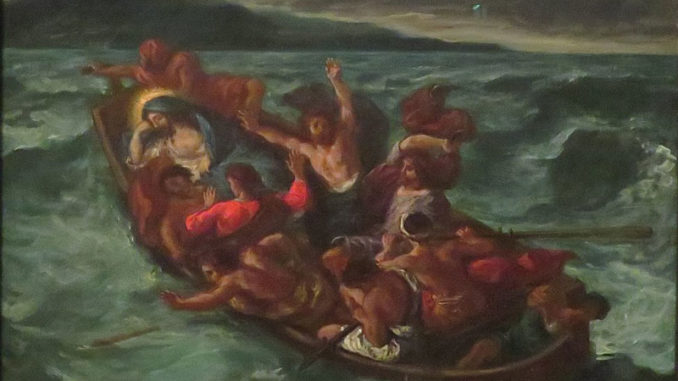
My first childhood crush was Charlie Levy. He lived on our crowded Queens, New York, block.
I recall being a little concerned that, though I had turned 6 he was still 5. The fact that he wore a yarmulke when he was dressed up on Saturday and had a family that had a menorah instead of a Christmas tree didn’t faze me at all.
Our neighborhood was a short walk from the new U.N. village, and my Catholic grade school class included Louise Smith, the African American girl I stood with in line; Francisco, my major competitor in spelling bees, who came from Mexico; and Orlando (a later crush), from the Philippines.
Among my relatives was a great aunt who was Jewish, an Episcopalian grandmother, an uncle who was an Episcopal priest, and a second cousin who was a Dominican nun. My parents were definitely anti-racist long before Ibram Kende used the term as they lauded their personal heroes: Willie Mays, the New York Giants super-slugger; and Marian Anderson, the opera singer banned from performing at a DAR convention because she was African American.
My early childhood invited me to be catholic with a small c. And it folds into my adult life as a committed Catholic. One of the outstanding events of this Holy Week, apart from the ever-moving Triduum and Easter liturgies, was a Seder meal at Beth Yam Synagogue in Hilton Head.
Since last October, a group of us have been gathering to dialogue about faith traditions and ways to address societal problems. At the Seder we did exactly that, with each of us taking turns reading, offering prayer, and partaking of the bitter herbs, the matzoh, the wine, and a sweet mix of fruit and nuts.
Rev. Therese Lee from the Unity Church reflected on how Passover and Easter are an invitation to discover the Christ within, who calls us to union with all human beings. Rev. Dr. Jonathan Black, pastor of Campbell Chapel African Methodist Episcopal Church in Bluffton, spoke about the Israelite pilgrimage from slavery to freedom and its relationship to global and local struggles for freedom and justice today.
Bishop Craig Dixon from the Church of the Latter Day Saints compared the trek of the Mormon forefathers from Ohio and ultimately to Utah because of persecution. I spoke of how we Catholics identify Christ with the Paschal lamb, understand the Eucharist, and see the whole Paschal mystery as freeing us from the power of sin and death.
Our comments interspersed with those of Rabbi Brad Bloom, our host, as he expounded on the Exodus history and its continued relevance.
In the after-glow of Easter, we might reflect on how it is that we should conduct our lives among those who don’t share our faith, our ancestry, or our political convictions.
This year’s Seder seemed to me, as a missionary disciple, a fitting way to honor our Savior, who engaged in spiritual conversation with a Samaritan woman, let a Cyrenian help bear his cross, evoked testimony as to his Sonship from a Roman centurion, and opened his Church to Gentiles.
We confront the epidemic of hate by sitting together, getting to know one another, listening, and realizing that we are all, as Pope Francis says, “on the same boat … called to row together.”

